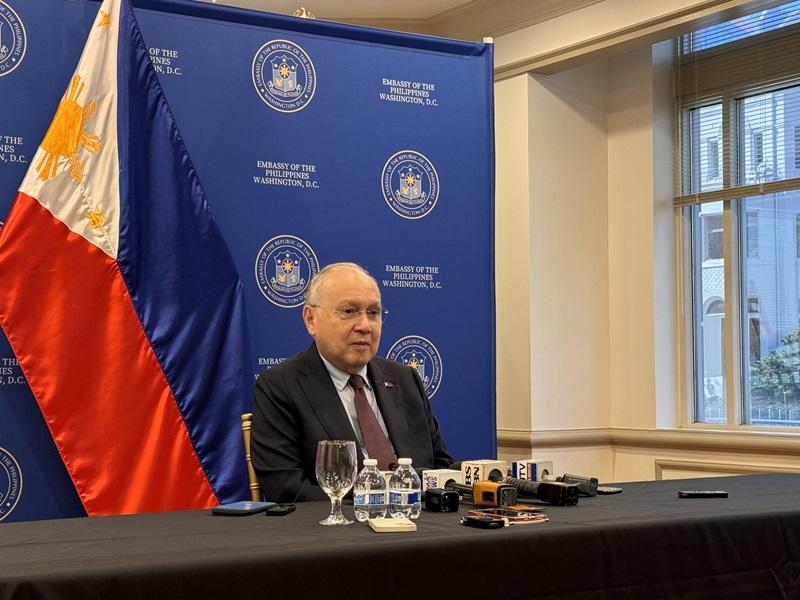PH seeks to gain $100B in investments from US, Japan in next five years

WASHINGTON D.C. — The Philippines is set to reap in some $100 billion in investments from the United States and Japan in the next five years as the countries are expected to deepen their economic cooperation this week, an official said Wednesday.
According to Philippine envoy to Washington Jose Manuel Romualdez, the country is positioning itself to welcome more foreign investors, especially in sectors that currently need more backing such as energy.
“I can tell you that the figures I have been hearing, this may sound a little bit expanded in a way, but we’re talking about a hundred billion (dollars) in investments in the next five to 10 years,” he told reporters in a press briefing at the Philippine Embassy here.
“Perhaps even five years would probably be more appropriate because of the fact that we have a lot of areas where we are putting ourselves, our economic managers are putting our country into a situation where we’re opening up our economy, especially in energy, which is very important for us,” he added.
Foreign investors or companies have been allowed to engage in the Philippine renewable energy sector after the Department of Energy (DOE) in November 2022 amended the implementing rules and regulations (IRR) of the Renewable Energy Act of 2008.
The administration — led by President Ferdinand “Bongbong” Marcos Jr. — is also looking at amending the Electric Power Industry Reform Act (EPIRA) to bring down the cost of electricity across the country.
Enacted in 2001, EPIRA, a landmark pro-market reform, aims to ensure reliable and competitively priced electricity in the country.
Romualdez cited the Philippines’ need to bump up its energy supply, as the requirement continues to increase each year, and is only expected to climb even further in the next two years.
“I think we’re trying to fast-track that as much as we can, and the more exciting part of the clean energy projects that we’re trying to lure into the country is the small modular nuclear power plants,” he said.
“The President’s quite excited, specifically about a company that is going to be supplying the small nuclear power plants. As you know, we have 7,640 islands and this is going to be perfect for us, it’s much safer, it’s cleaner, and at the same time, it’s very new technology,” he added.
The Ambassador said Marcos is set to meet with representatives of Ultra Safe regarding the matter. Based on its website, the firm is headquartered in Seattle, and boasts itself as the only private company producing TRISO and FCM fuel.
He also cited the possible joint exploration in the West Philippine Sea as part of the initiatives to boost the country’s energy supply to meet its increasing demand, along with the semiconductor industry which is set to drive investments even further.
“I think we have opened it up. I’m not quite certain many of these concessionaires who have concessions in the areas for exploration. I know that they have been talking to some companies here in the US, looking at potential partners on a joint venture for the exploration of energy sources in the area,” he said.
“I think a lot of these investments are mostly, as I said, in the semiconductor industry, which is part of our digital infrastructure which is also very important, and also in the area of energy,” he added.
Latest data from the Philippine Statistics Authority (PSA) show that the United States was the biggest recipient of Philippine exports as of January 2024, with $902.33 million or 15.2% of total exports, followed by Japan with $869.25 million.
In terms of imports, Japan was the second-largest supplier of shipments into the Philippines during the month, with $789.36 million, behind China at the top spot with $2.65 billion. The United States came in fifth with $671.86 million. — BAP, GMA Integrated News




